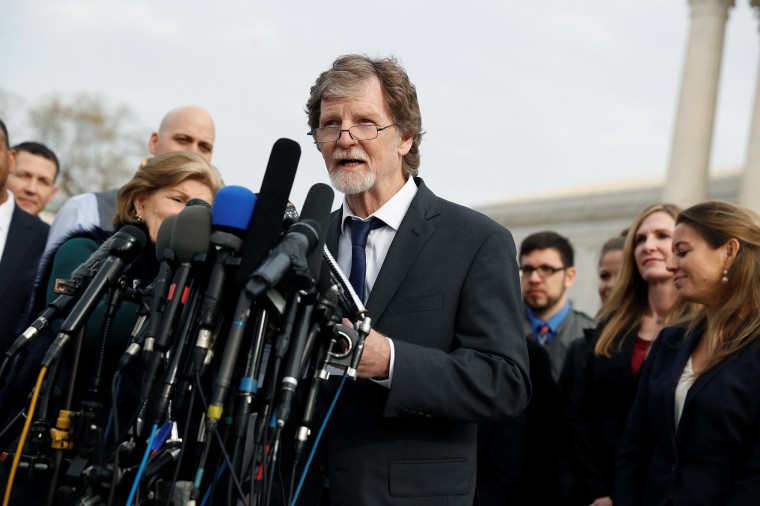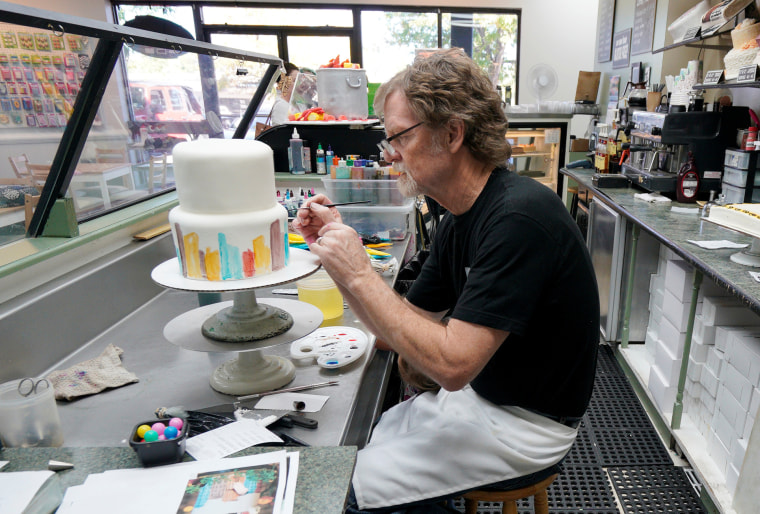It could be time for Masterpiece Cakeshop, Part II.
One of the most anticipated Supreme Court cases last term turned out to be something of a dud. In Masterpiece Cakeshop v. Colorado Civil Rights Commission, the court had the opportunity to determine the boundaries between the freedom of religion and the freedom from discrimination. The ruling's majority opinion, written by now-retired Justice Anthony Kennedy, sided with Colorado baker Jack Phillips, who had refused to bake a cake for a same-sex wedding.
But the ruling was excruciatingly narrow — the court left open the larger question of whether religious beliefs can justify discrimination against LGBT Americans.
In the majority of states in this country you can get married on Sunday, and fired on Monday, depending on the sex of who you married.
This lack of clarity was created in part by the court’s landmark decision in Obergefell v. Hodges, another opinion written by Kennedy. There the court concluded that marriage is a fundamental right and that the Fourteenth Amendment guarantees that right to both same-sex and heterosexual couples. Hence everyone, regardless of sexual orientation, can get married in America. But importantly, the court went no further than ruling on the right to marry.
This means, for example, that it is still legal to fire people for being gay. Twenty-eight states have no workplace protection for gay employees who are fired by their employers. Put another way, in the majority of states in this country you can get married on Sunday, and fired on Monday, depending on the sex of your spouse.
And workplace discrimination is not the only type of LGBT discrimination that is still legal in the country. We know from Masterpiece Cakeshop and other cases that gay people can still be refused service by businesses, including bakers, florists and photographers.

Kennedy’s retirement was greeted with despair by abortion rights advocates worried that his assuredly more conservative replacement would be more willing to consider repealing Roe v. Wade. But over his tenure, Kennedy’s influence was felt on a wide variety of issues; without him, the court may be more inclined to make bigger and bolder decisions on a whole host of topics.
Let’s take the Masterpiece Cakeshop case as an example. Conservatives may have celebrated the decision this past summer, but there was barely a winner and a loser in that case; the real loser was the Colorado Civil Rights Commission, which the Supreme Court concluded had made comments that were hostile to religion.
Now, like the proverbial bad penny, the case of the Colorado baker is back in the news. The same Colorado baker now claims that Colorado discriminated against him when he refused to make a cake celebrating the anniversary of a transgender woman’s gender transition. A Colorado Civil Rights Division concluded that there is probable cause that a Colorado law would require the baker to make this cake. The baker claims this conclusion amounts to discrimination against him.
It is unclear whether the second Masterpiece Cakeshop case is headed for the Supreme Court. But if President Donald Trump's nominee Judge Brett Kavanaugh is confirmed, which he likely will be, the Supreme Court would almost certainly rule for the baker. Again. Indeed, whether it be Masterpiece Cakeshop II or something else, the next case weighing the rights of a religious objector against the rights of a gay or transgender person will certainly be decided in favor of the religious objector.
Some may claim we don’t really know whether Kavanaugh is more conservative than his former boss, Kennedy. But he is. And assuming he is confirmed, Kavanaugh will move the court further to the right for decades to come. It is an almost inconceivable fact that Chief Justice John Roberts, a truly conservative justice by any stretch of the imagination, could soon be the swing vote on the court.
Ultimately, Kennedy and his narrow ruling failed us. By retiring, he gave Trump the green light to push through a right-wing nominee. One need only look at Trump’s first nominee, Justice Neil Gorsuch, to understand that. Gorsuch’s voting record last term shows that he will be a reliably conservative jurist.
Now LGBT Americans can, at most, hope that the Supreme Court will either decline to hear cases involving their grievances, or do as little harm as is possible when — predictably — it rules against them. To the extent that LGBT Americans will want to find judicial avenues to fight discrimination, they may find it prudent to take their fights to state courts, and avoid the highest court in the land.
Jessica A. Levinson is a professor at Loyola Law School, Los Angeles, and the former president of the Los Angeles Ethics Commission. She tweets at @LevinsonJessica.



